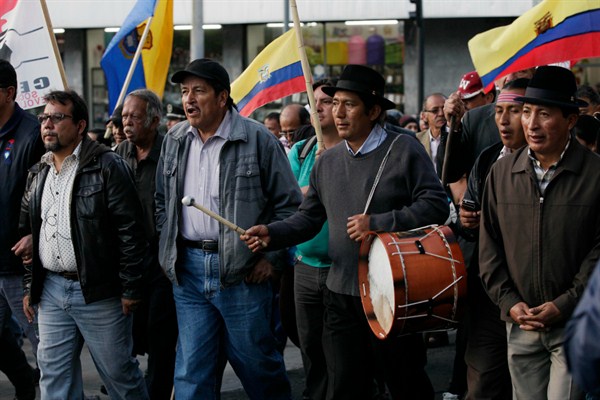Editor’s note: This article is part of an ongoing WPR series on the legal status and socio-economic conditions of indigenous peoples in a range of countries.
The Ecuadorean indigenous political party Pachakutik yesterday officially validated the results of its presidential primary, naming Lourdes Tiban as the party’s nominee for next year’s election. In an email interview, Manuela Picq, professor of international relations at Universidad San Francisco de Quito (USFQ) in Ecuador, and currently a Loewenstein Fellow in the department of political science at Amherst College, discusses the legal, political and socio-economic status of Ecuador’s indigenous peoples.
WPR: What is the legal status of Ecuador’s indigenous peoples, and what are the key political and socio-economic issues facing indigenous communities?

